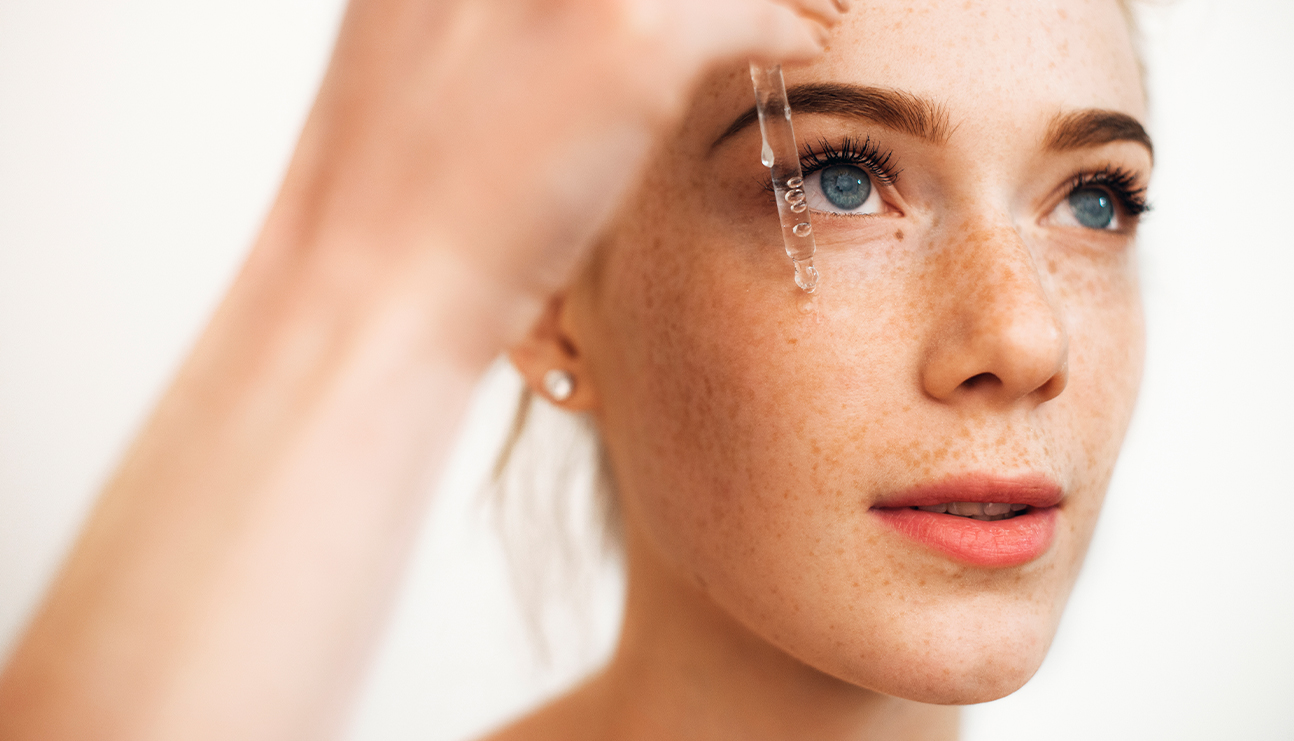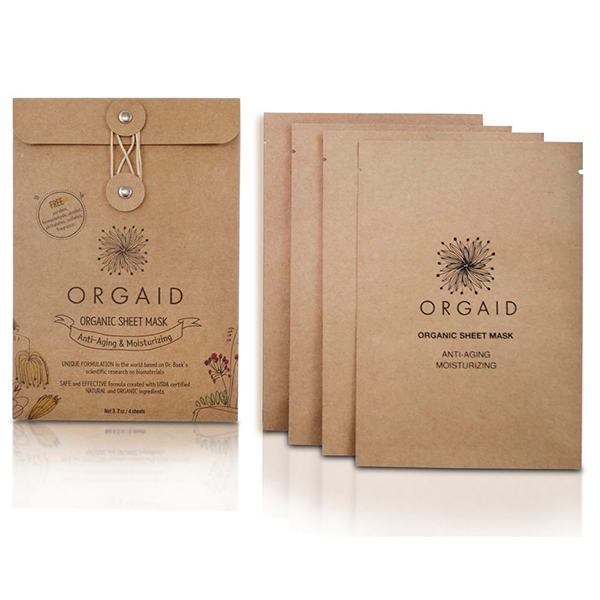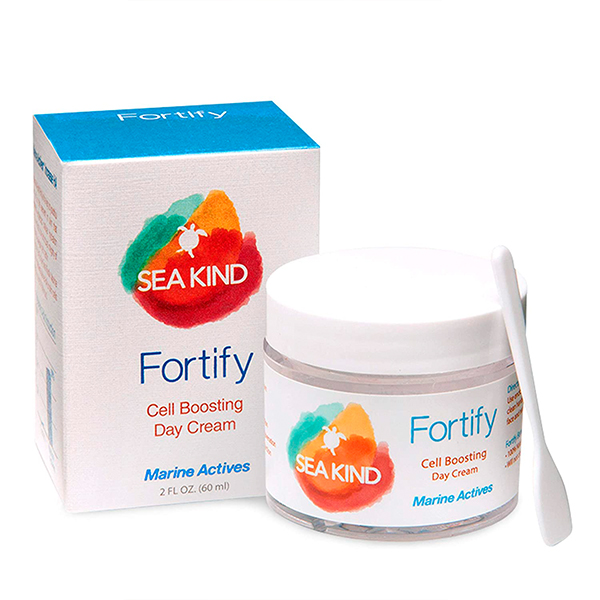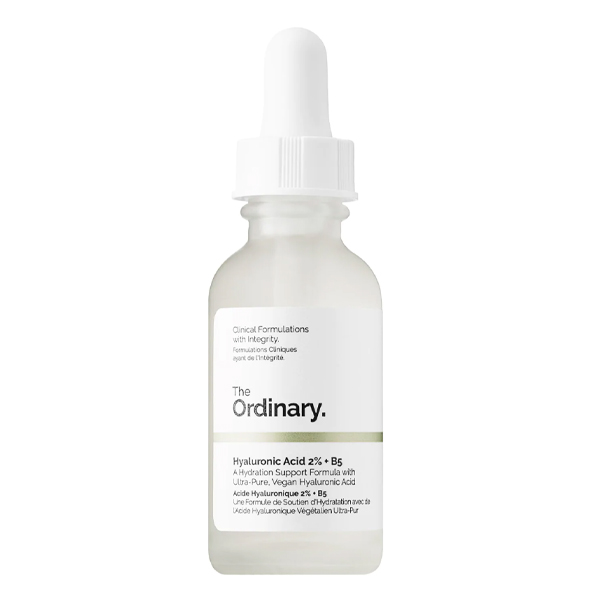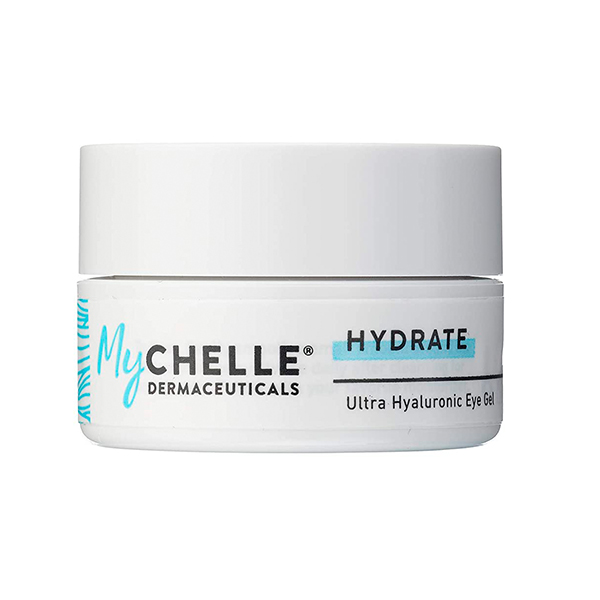What’s the Deal With…Hyaluronic Acid?
Ariana DiValentino
If there’s one skin care ingredient that seems to have gone from 0 to 60 over the last few years, it’s hyaluronic acid. Eva Longoria even taught us how to pronounce it. It’s been purported to be the secret to hydration and even anti-aging, but for most of us, that’s probably about all we know.
Hyaluronic acid (sometimes shortened to “HA” or listed as sodium hyaluronate on ingredient panels) is a sugar naturally present in human skin; in fact, it is the key molecule responsible for keeping skin hydrated. Its function is to retain water. Like, a lot of water: 1,000 times its weight. As a humectant, hyaluronic acid draws water toward the skin’s surface and holds it there.
A high water content is largely what makes youthful skin plump and elastic, as well as more resilient to aging. As your skin ages, it tends to lose moisture. Enter: Supplemental hyaluronic acid in the form of creams, serums, injectables, and mists.
Hyaluronic Acid Gets Glowing Reviews
There’s still a lot that scientists would like to know about how hyaluronic acid works in the skin, but the research so far bodes well. Studies have found consistently that supplemental HA improves the hydration and elasticity of skin, as well as working for wrinkle reduction. These studies’ findings also suggest that at the cellular level, small and low-weight particles are most effective, likely because they’re better able to penetrate skin.
All in all, the research on HA is looking pretty good, and this goes for serums, moisturizers, gels, pretty much any topical product you can think of. There are only a handful of active ingredients in skincare products that are backed up by research this strong, so it’s little wonder that the beauty industry has gone hyaluronic happy in the last few years. All signs suggest that it really works!
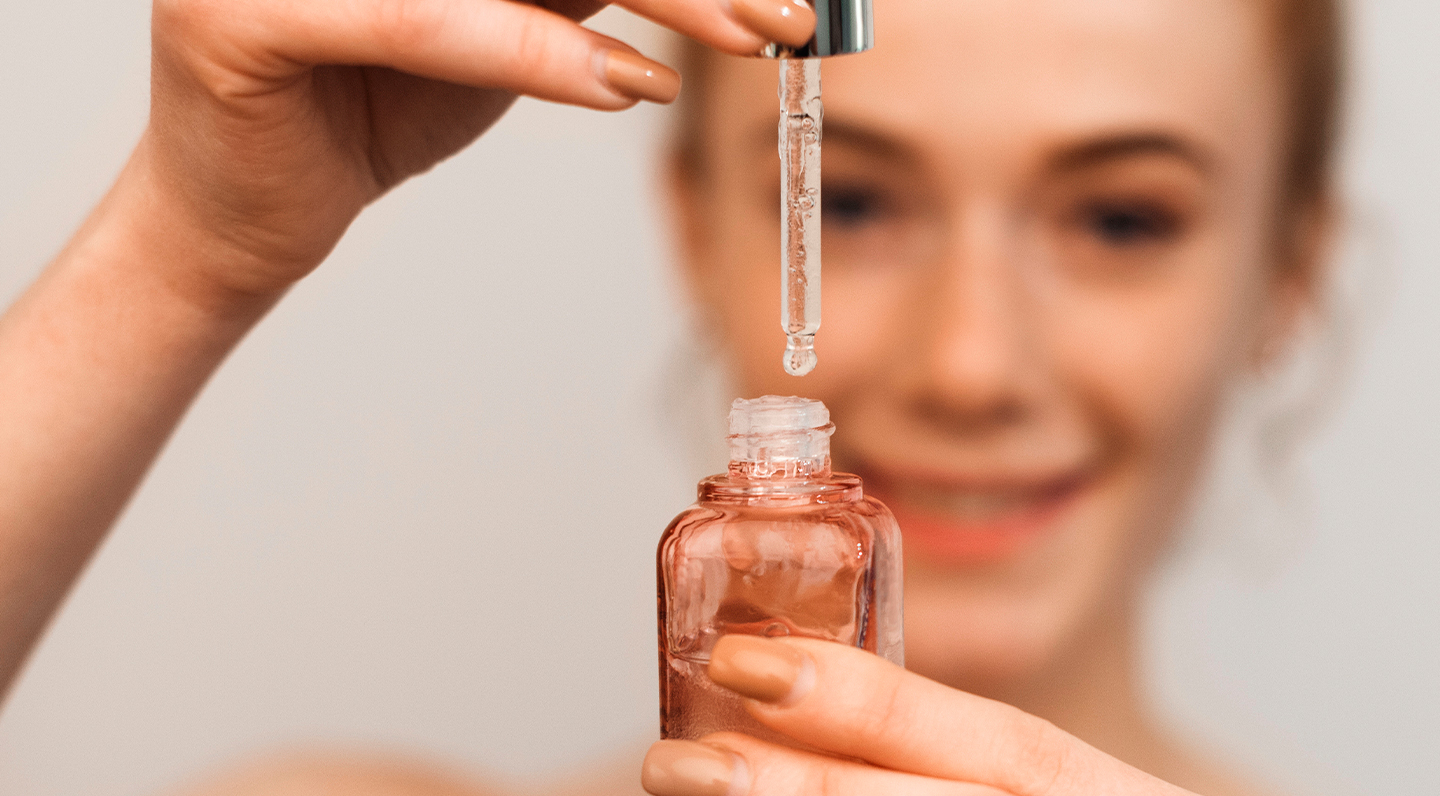
Hyaluronic Acid Is Safe to Use (Because Our Bodies Make It Naturally!)
There have been minimal reports of skin reacting poorly to HA. Even in other forms, like pills, the prevalence of side effects tends to be minimal to nonexistent. This is probably because human bodies already produce hyaluronic acid naturally, so it’s unlikely to cause a rash or other undesirable reaction.
Of course, everyone’s skin is different and you may want to start by spot testing one new product, rather than diving headfirst into a full regimen of HA treatments. You know your skin better than anyone.
Because HA is a humectant and sucks water from nearby areas, there is the concern that it could drain deeper layers of skin of their moisture, which is very much not what we want. Particularly for folks with dry skin and/or living in arid climates, most dermatologists suggest an order of operations to make sure the HA is putting moisture into your skin, not taking it out. Apply your HA serum (or what have you) to slightly damp, not totally dry skin. Then, seal it in by applying a moisturizer over it. That should ensure that the HA has all the moisture it needs to treat your skin effectively.
If you’re looking to protect skin or just up your dewiness factor, here are a few products we’d recommend.



